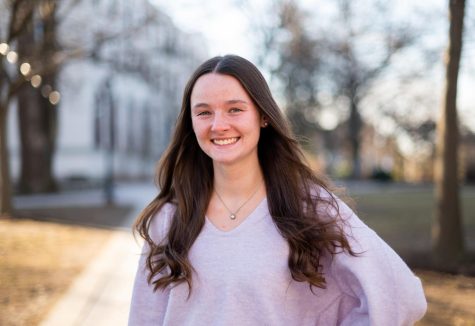University Awards 50th and 51st Mendal Medals
November 3, 2021
The University awarded the 50th and 51st Mendel Medal Awards to Lonnie G. Thompson and Ellen Mosley-Thompson over the weekend of Oct. 29-30 for their exceptional work on climate change and polar ice caps. This ceremony commemorated the 2020 Mendel Medal Award, as it was rescheduled due to the pandemic.
The Mendel Medal was first awarded in 1929. According to the University website, the medal was established and awarded to outstanding scientists who have done much by their painstaking work to advance the cause of science, and, by their lives and their standing before the world as scientists, have demonstrated that between true science and true religion there is no intrinsic conflict.”
Lonnie G. Thompson is a professor at Ohio State University in the Earth Sciences Department and Ellen Mosley-Thompson is a professor in the Geography Department at Ohio State. The Thompson’s have dedicated their life’s work to investigating climate change while going on drilling expeditions to excavate ice cores. Ice cores, according to Lonnie Thompson, are “artifacts” and give the history of that specific glacier including history of precipitation, output of the sun, volcanic matter and greenhouse gas activity.
During the Mendel Medal Lecture on Friday Oct. 29, the Thompson’s hosted a lecture titled “Rapidly Changing Climate and Retreating Glaciers: Past, Present and Future.”
They were introduced by Steven Goldsmith, an associate professor at Villanova University in the Department of Geography and the Environment. Mosley-Thompson spoke first, discussing the staggering effects of climate change. She highlighted the large decline of sea ice, rapid warming of the Earth and glacier melting. Mosley-Thompson analyzed the causes behind the rapid climate change the world is currently experiencing, proving that it is not just natural mechanisms, but also human mechanisms such as deforestation or the burning of fossil fuels.
The second part of the lecture was done by Lonnie G. Thompson, and he discussed their expeditions and the details of their work. He explained the work done on ice cores, specifically focusing on his work with the tropical Quelccaya ice cap.
The Thompson’s lab at Ohio State is filled with preserved ice cores from their previous expeditions. Lonnie G. Thompson echoed Mosley-Thompson’s sentiments on the dire consequences of our global warming.
“We are losing the history that is in the ice,” Lonnie G. Thompson said.
He emphasized his point by claiming that many of the ice cores that they keep in their lab are from ice caps that are no longer in existence due to intense melting.
Despite his call to action, Lonnie G. Thompson closed on a positive note claiming, “We do have a path forward,” citing the fall in price of renewable energy and the work done by the younger generation protesting the inaction on climate change.
Many students and staff were in attendance at the Mendel Medal Lecture.
“The speakers we had were lovely,” sophomore Emma Blenke said. “I learned so much about climate change and the retreating of the ice cores that I didn’t know about. I liked that they gave everyone steps forward to positively support the climate change community.”
Despite the year-long delay in awarding the 2020 Mendel Medals, the event had a large turnout of students and staff from all different disciplines.












